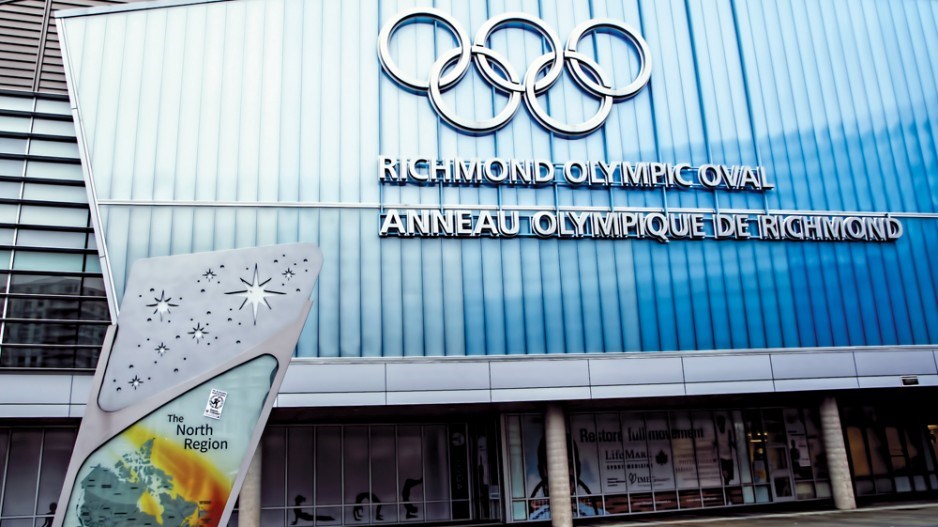There’s little question that the 2010 Winter Olympics generated positive economic impacts for Vancouver and the rest of B.C. All the spending in the lead-up to the Games helped to insulate B.C.’s economy from the 2008-09 recession.
Hosting the Games again in 2030 would likely also have positive effects, but they might not be as profound as the 2010 Winter Games were, because much of the GDP growth they generated came from the billions of dollars governments spent on venues and infrastructure.
A new Olympic Village may need to be built to host athletes and their entourages. Otherwise, Vancouver and Whistler could host the 2030 Games without having to spend a lot of capital because most of the venues and transportation infrastructure needed is already in place.
PwC was contracted to do several reports on the economic impacts of the 2010 Winter Olympics. In its final report – Report 7, released in 2011 – PwC calculated the Games boosted B.C.’s gross domestic product by $2.3 billion, created 45,000 jobs and resulted in $1.1 billion worth of contracts for B.C.-based companies.
However, most of that occurred in the 2003 to 2010 lead-up to the Games. Much of that economic boost would have come from government spending on Olympic venues and big capital works projects like the Sea-to-Sky Highway and Canada Line.
Though not a direct Games expense, infrastructure like the Sea-to-Sky Highway and Canada Line were definitely catalyzed by the Games. The Canada Line was the biggest capital expenditure, at $2.1 billion. The Sea-to-Sky Highway cost $600 million, and the Vancouver Convention Centre expansion cost $883 million.
Expenditures came to $4 billion directly related to the Games and the Vancouver Organizing Committee (VANOC), $3.7 billion for “Olympic-induced” infrastructure (i.e. venues) and $3.7 billion in “non-venue infrastructure.”
The Games employed 21,693 workers, most of whom (17,273) were volunteers, and 15,695 externally. Presumably, there would be less of an economic impact for 2030, because there would be less capital spending needed. The main benefit would come from an influx of visitors, which would be a big boost for the region’s hotel and tourism sectors.
“Certainly there would be benefits to tourism, but not only during the Olympic period itself,” said Walt Judas, CEO of the Tourism Industry Association of BC. “When the Vancouver-Whistler Games happened, it was more the lead-up events, and occupied venues booked. They accounted for many hotel rooms, lots of business travel back and forth.”
Post-Games, host cities tend to attract more tourists because of the media exposure they get internationally.
“You have the benefit of both pre- and post-marketing activities as a host city,” Judas said. “For several years afterward, you saw fairly significant growth as an industry, really, right up until COVID started.”
Vancouver’s tourism industry recorded a 7.2% increase in the months following the 2010 Games, according to the International Olympic Committee (IOC) and Canadian Tourism Commission (now Destination Canada). According to Tourism Whistler, between 2010 and 2016, long-haul destination markets experienced an 18% increase in room nights in the winter and 36% in the summer.
An expanded convention centre led to larger conventions being hosted in Vancouver in the years after the Games. For example, the ACM SIGGRAPH computer animation conference was held in Vancouver for the first time in 2011. It drew 15,872 participants, and the conference returned to Vancouver in 2014 and 2018.
Vancouver also took advantage of its venues and its experience in hosting the Winter Games to attract other large sporting events. In 2015, the City of Vancouver, Tourism Vancouver, the Vancouver Hotel Destination Association, the University of British Columbia (UBC) and the BC Pavilion Corp. established Sport Hosting Vancouver. Since then, it has secured international sporting events for organizations like FIFA and World Rugby, as well as national events with Skate Canada, Hockey Canada, Canada Soccer and Tennis Canada.
Rob VanWynsberghe, a UBC professor commissioned to analyze the costs and benefits of the 2010 Games, said there is an expectation of legacies on the part of host communities.
“People are pretty savvy now, and I think they’re going to want something that actually matters at a community level,” VanWynsberghe said.
There might be pressure, for example, to convert whatever athletes’ village gets built into social housing post-Games.
“I think this time around, especially in the Lower Mainland, you’re probably going to have to deal directly with the social housing issue.” •




